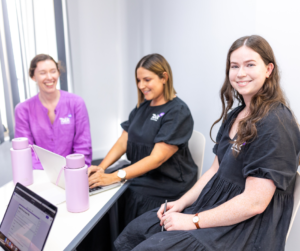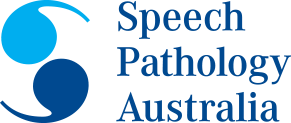During the school holidays, TalkHQ offers an array of group therapy programs. One of our highest sought-after groups is called Sounds-Write For Literacy Group. This blog will explain what this group is about, who it is most suitable for and why it benefits these clients. I will also address some of our FAQs that we get asked!
What is Sounds-Write For Literacy?
Sounds-Write For Literacy is TalkHQ’s group therapy program to help students who find reading and spelling tricky. The groups are based on the evidence-based program called Sounds-Write. For years I spent so much time helping kids read by explicitly teaching phonics rules. Then the team and I attended a Sounds-Write professional development course by Soundality. I fell in love with the multisensory approach to teaching kids literacy. The focus is on using speech, touch and movement to help the brain make new connections for reading and spelling. I realised I used to overload their systems with too many “rules” and this was a simpler way.
We completed the course and changed our practice right away. We use the Sounds-Write program with many clients in a one-to-one setting. During the school holidays, we use it in a group setting. We find the kids enjoy the group setting because it can make it more fun. They also meet other children their age who need help boosting their reading and spelling. This can really help their confidence and not feel so alone in this learning process.
Does it help with dyslexia?
Sounds-Write is a multisensory program that teaches systematic, synthetic phonics. This is why it is suitable for children with dyslexia. You don’t need to have a diagnosis of dyslexia, though. It helps children who are falling behind their peers in reading and spelling. It is based on the Orton-Gillingham technique. The Orton-Gillingham approach is based on the premise that dyslexia affects the brain’s ability to process language. TIt was developed in the 1930s by Dr. Samuel Orton and Dr. Anna Gillingham, and it has been shown to effectively teach reading and spelling to dyslexics. The Orton-Gillingham approach uses a system of drills and exercises that engage all of the senses, including sight, sound, and touch. The Orton-Gillingham approach aims to help dyslexics develop the skills necessary to read, write, and spell effectively.
Speech pathologists play an important role in helping people with dyslexia improve their reading and spelling skills. By working with a speech pathologist, students with dyslexia can learn to better understand the sounds in words and how they relate to written words. This can help them to decode words better when reading and spell them correctly when writing. In addition, speech pathologists can also help children with dyslexia to improve their oral communication skills, which can be essential for activities of everyday life. If you or someone you know is struggling with dyslexia, consider seeking out the help of a qualified speech pathologist. With the right support, students can improve their reading and spelling skills significantly.
Why do speech pathologists help with literacy?
Our speech pathologists run the Sounds-Write For Literacy groups. Speech pathologists help children with reading and spelling difficulties because literacy is a type of communication. Speech pathologists help children with spoken communication and written communication. Children need to have good oral language before learning the intricacies of written communication.
A speech pathologist helps children learn the foundation skills for written communication, including talking, listening and comprehension. In fact, a speech pathologist can help your child build the skills they need for all six key reading and spelling skills. These are known as the Big 6.
Reading and writing are essential skills for success in school and beyond. Research has shown that children who are strong readers and spellers tend to do better in school overall. In today’s world, communicating clearly when writing is more important than ever. With email, text messaging, and social media, we are constantly communicating in writing. Having strong written communication skills can help your child succeed in school. That’s why it’s important to ensure you develop these skills early on. Reading and spelling are the foundation for strong written communication skills. Our Sounds Write For Literacy groups ensure your child gets plenty of practice with both.
What is the Big 6 of Literacy?
Many experts agree that there are six key skills that are essential for reading and spelling success. These skills are known as the Big 6 of Literacy and include phonemic awareness, phonics, fluency, vocabulary, comprehension, and writing. Students need to develop a strong foundation in each of these areas to tackle any reading or spelling challenge.
Firstly, phonemic awareness is hearing, identifying, and manipulating individual sounds in spoken words. This is an important skill for reading and spelling. It helps students to break words down into smaller sounds.
Secondly, there is Phonics. This is the understanding that there is a relationship between letters and sounds. This knowledge is essential for reading and spelling. It allows students to decode and encode words.
Fluency is the ability to read with speed, accuracy, and expression. This is important because it allows students to focus on comprehension rather than decoding words.
Vocabulary refers to the words that students know and understand. A strong vocabulary is essential for reading comprehension because it allows students to connect new information and what they already know.
Finally, comprehension is the ability to understand and remember what has been read. This is the ultimate goal of reading, and it can be supported by developing the other Big 6 skills.
Writing is also an important part of reading and spelling success. Students can solidify their understanding of spelling patterns by practising writing words and increasing their confidence in reading and spelling tasks.
The Big 6 skills are essential for every student who wants to succeed in reading and spelling. Speech pathologists can help students build a strong foundation in these areas and continue to grow the skills they need for success in school and life.
What’s involved in the Sounds-Write For Literacy groups?
Each of our groups runs for 1 hour each day for 4 days. It is important that your child attends each day of the groups. Children are placed in groups with children of similar age. Groups run for 4 days. You may wish to enrol your child in a second Sounds-Write For Literacy group during the holidays.
Do parents sit in the sessions as well?
Parents will wait in the reception. At the 50-minute mark, the speech pathologist will bring the children out to the parents and explain what was covered in the group. Because of confidentiality, specific feedback about your child’s performances is shared via the See Saw app. This is a REALLY important feature of the groups. A big component of speech pathology is coaching parents (and kids) on how to use particular techniques to help build and strengthen specific skills. These ten-minute daily tricks/tips in the family home make a world of difference to your child’s reading and spelling.
How many children are in each group?
We only allow 3-4 children per group to maximise learning.
How do I enrol in the groups?
Contact Us here and our support services team will be in touch to add your child to the group. Alternatively, click this link and you will be taken to our online booking system. and you can select the location and time that suits you. For private paying clients, we require a deposit of $96. Once enrolled in the group, we will send you a confirmation email, case history and payment details.
What if the groups are already full?
You can register your expression of interest. We will contact you when the next round of groups becomes available. To ensure your child’s place, we recommend paying a deposit.
How much does group therapy cost?
Each session costs $96. This includes a $10 non-refundable administration fee.
How much is the deposit?
The deposit is $96, payable at the time of booking. NDIA-funded clients will need to submit a completed service agreement to secure their child’s place.
What if my child can’t attend the group?
We understand that life happens and plans can suddenly change. You must contact us to let us know you cannot attend. Your child can attend a group at a later date.
If you are no longer interested in attending the groups, you will receive a refund of $86.
Written by Julie Sexton, Senior SLP and CEO of TalkHQ







